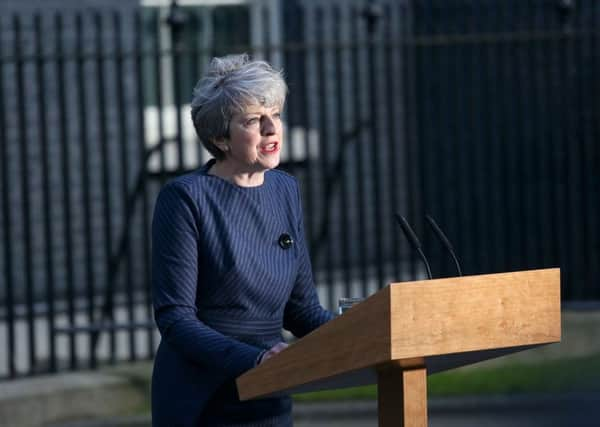Analysis: May tries to justify U-turn on early election


But having personally, and through her official spokesmen, unambiguously ruled out the prospects of an early election, Theresa May had left herself no wriggle room.
So when the Prime Minister emerged from Downing Street her statement had to pass one test alone - could she explain why she was asking voters to go to the polls just two years after the last General Election?
She partially succeeded.
Advertisement
Hide AdAdvertisement
Hide AdThe Prime Minister appealed to the British public to give her the mandate to abide by their wish to leave the European Union expressed in last year’s referendum.
It had become apparent, she claimed, that the ongoing wrangling in Westminster could damage Britain’s negotiating position in the Brexit talks.
The major flaw in her case was that none of the circumstances to which she pointed have shifted fundamentally in recent months.
And there is no reason to believe they will be fundamentally different after the coming election.
Advertisement
Hide AdAdvertisement
Hide AdMrs May is likely to emerge with a bigger Commons majority but the Conservatives’ share of the vote will be well short of 50 per cent. Her hard-Brexit mandate will remain a matter of fierce debate.
Of course she could not publicly admit to other factors which will have changed her mind.
The recent success of Conservative backbenchers in forcing a climbdown over proposed National Insurance changes was a stark reminder to the Prime Minister of the realities of working with a small majority and what difficulties that might cause in the years ahead.
If her MPs were willing to rebel over National Insurance, what would they do when irritated by elements of the UK’s Brext deal or if she pushed ahead with proposals to reduce the Commons by 50 MPs and change constituency boundaries?
Advertisement
Hide AdAdvertisement
Hide AdBut more compelling of all will have been the ongoing polling evidence of the dire straits in which Labour finds itself and the realistic prospect of securing two extra years in Downing St and putting more distance between the conclusion of the Brexit talks and the next election.
Mrs May will win the coming poll, but in the eyes of some voters she will now be the Prime Minister who went back on a clear promise.